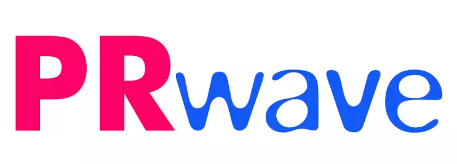 What do member of the interactive jury think of it?
What do member of the interactive jury think of it?
New media is no longer new. And it is no called digital any more. It is interactive. A big and important group on Golden Drum Advertising Festival is group F. It is open to all agencies, advertisers, clients, design or production houses, TV broadcasting or media companies and others involved in the creation or production of marketing communications from ALL COUNTRIES around the world. All entries are eligible to compete for Best Act Award and Brand Grand Prix. Deadline for submitting the works is September 1, 2010. Here is what the jury will do with them:
Advertising is obviously changing fast lately (thanks to you, guys) or as we say, it is under reconstruction. Into what? And how will it look like in the next five (10, 20) years?
Jan Pautsch: The Golden Drum motto fits. Digitalization is stretching communication, sometimes beyond understanding. At the same time, there’s still plenty of stuff being made (display ads, microsites, specials…) that I think is just obsolete, so advertising has to transform itself more into a creative service, anchored in the product’s real design and user benefits, and showing people how the product makes a meaningful difference. (I guess this is why advertising as we knew it is dying.) I also think design is going to continue becoming more important – not in the sense of shiny pretty things but in the sense of making it even easier for people to participate in creating and celebrating product benefits themselves.
Tomas Schmid: 18 years ago the first computers were bought by agencies in Austria. It was a great typing machine. There was no internet or mobile phones around. Nobody in the industry had the slightest clue how advertising would look in 20 years. So neither to do I when you ask me about 2030. But I know one thing for sure. New technologies and communities like Facebook are changing our societies dramatically. It’s a big loss of privacy and a totally new dimension of publicity. Like it or not. It’s not a reconstruction. It’s the end of the monopoly of information owned by newspapers or TV channels or companies! It’s the widest form of freedom of communication ever.
Tadej Zajsek: I would say it is not about reconstruction, it is more an evolution. For the past 11 years of our entering in the digital industry agencies are slowly, but surely changing advertising industry with a help of two- or more-sided communication. Interaction is the key. This brought more and more engagement of the consumer into brand communication and also the influence on the brands’ product and service. Advertising is changing into integral communicating & selling process which includes communication, purchase and costumers care and also customers’ relations and their engagement into development and evaluation of the product. Results of communication and purchase can be measured.
Why is there so little awarded (creative) advertising seen in everyday life? And why all we see is sales-promotion, no-brand-building, pushy-brainwashing? Or do I have a wrong opinion?
Jan Pautsch: I think it’s different from culture to culture. Where Scandinavia, the UK, the US and even Asia have some very progressive storytelling approaches, I feel we in Eastern and Western Europe have some catching up to do. Our strength is more in combining social concepts in clever ways, and I think that this will help build brands in ways we are only starting to understand. So I guess I think there is some good brand-building stuff out there, but it is not always easy to recognize, its effects may take longer to become visible. I’m seeing more and more of this, and I’m looking forward to being surprised at the festival.
Tomas Schmid: There is a lot of fear around. On the client and agency side. Testing campaigns is a great method to get bad work, but on the other side it’s wonderful to reduce personal risks. Product managers can go to their bosses and tell them that the consumers made the decision. The fear of losing clients also helps to create campaigns that nobody is interested in. Sure, you can’t simplify it. But by understanding that advertising won’t save any human life you are getting relaxed and that helps in doing better work.
Tadej Zajsek: Probably the reason is in fact that many are prepared just for the festival. Part of the reason might also be (at least in our region) that we lack contact with campaigns that have lots of sources (not only in €) and are produced for more important markets in terms of buying power then our little oasis is 🙂




